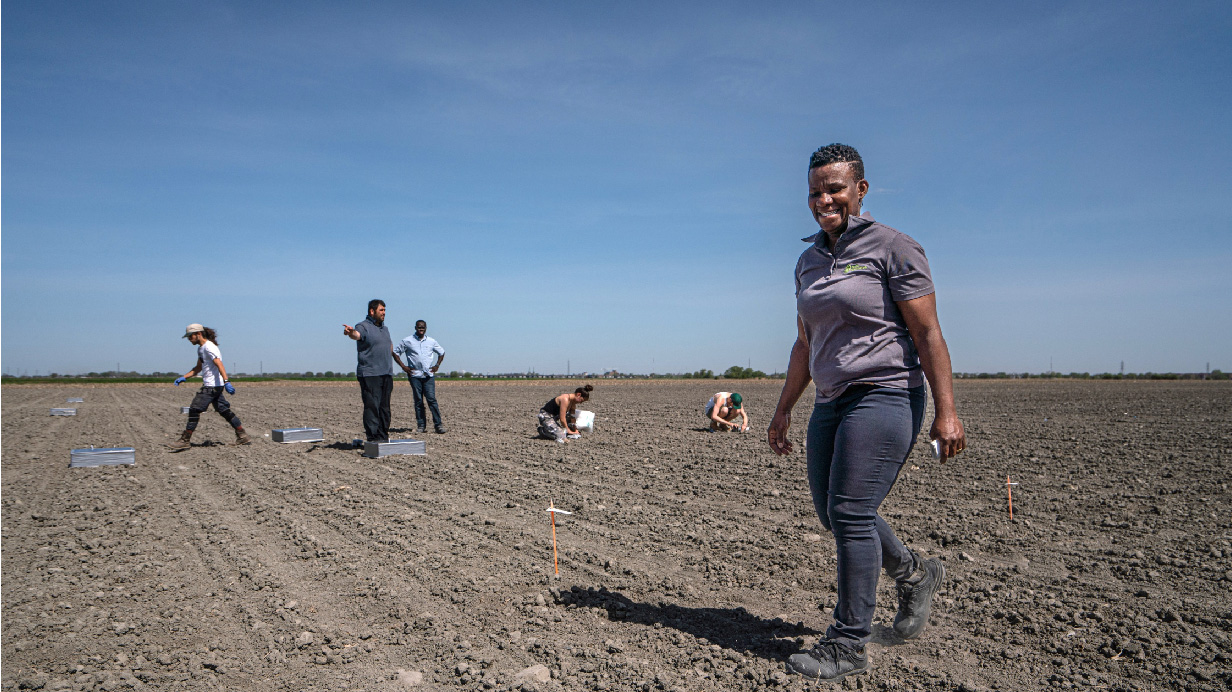Three sustainable agriculture projects at the research farm
For the past two years, Sollio Agriculture’s research farm has been testing management practices and conducting research to train agri-advisors and help farmers adopt new sustainable farming practices. Like these three projects:
1. Harvesting rainwater with an irrigation pond
Although it isn’t a research project per se, the farm pond collects rainwater that is used to irrigate the fusarium nursery.
To explain: at the research farm, we test different varieties of wheat each year. As part of the trials, we assess each cultivar’s resistance to fusarium. So we need to inoculate the wheat with different strands of fusarium (in other words, we attack the wheat with a fungus on purpose). Then we create ideal conditions for the fungus to grow, including high humidity. That’s where the pond comes in, so that we can avoid using drinking water for this type of irrigation.
Construction of the pond began in October 2022, with work continuing into the fall of 2023. We took the opportunity to seed the pond with Eco-riparian green manure. This mixture is perfect for creating vegetated riparian buffers—another effort to improve water management on the farm.
2. Using a drone in crop production
Throughout the 2023 season, the crop production research farm’s technical team used a drone to collect data in the field, including:
- Plant population
- Plot measurements
- Plant height and vegetation density
- Crop maturity
Collecting this kind of data by hand takes a lot of time, both at the research farm and in your fields. Given the current labour shortage, we wanted to see how drones measured up as an alternative data-collection solution.
In the medium term, this innovative technology could also be used for seeding cover crops and other precision tasks.
3. Harvesting on a research farm
High-performance heavy machinery is perfect for field crop farms, but to harvest a research plot, you need precision equipment like our 4-row and 1-row combines. Sometimes we even harvest by hand!
Whatever the size of our machinery, the important thing is to achieve high crop performance.
The 2023 corn harvest shows that our varieties are well adapted to the climate, with good maturity and low moisture content (22%) at harvest. That lower moisture content means lower drying costs, and less drying means less propane and lower GHG emissions. That’s what we call killing two (or three) birds with one stone!
From research farm to field
On Sollio Agriculture research farms, every detail counts. It’s where we test new seed varieties and crop management techniques.
The results of our research are presented to all the agri-advisors in our network, helping them to better advise farmers across Canada.
It takes several years of work in the field to offer farmers the best seeds and help them implement new sustainable farming practices.

